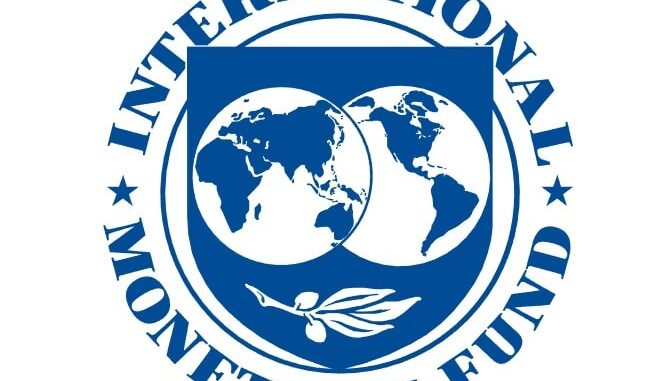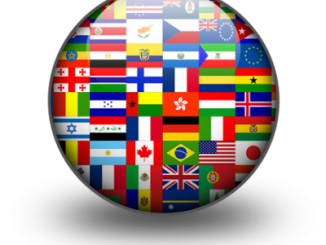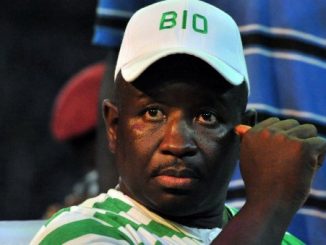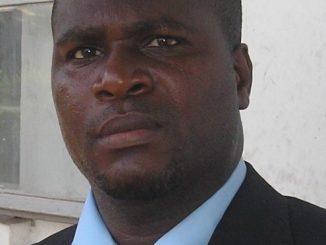
IMF disbursement to Sierra Leone is not a vote of confidence – it’s an emergency rescue package
On Monday, 5th June 2023, the International Monetary Fund (IMF) announced in a statement “IMF Executive Board Completes the Sixth and Seventh Reviews Under the Extended Credit Facility Arrangement for Sierra Leone,” that it had agreed for an extension of the ECF programme to November 2023 to continue building on recent structural reforms in order to achieve their programme objectives. This allows for an immediate disbursement of US$ 20.7 million which is definitely good news for a government that is cash strapped and a country that is on the brink of economic collapse.
If this money was not provided with immediate effect, the government would not have been able to even pay salaries or pay for its running costs. With elections barely three weeks away, this would have been a disaster not just for Bio’s administration but also for the peace and security of the state.
The IMF was very clear in its statement relating to that disbursement. “Sierra Leone’s economic challenges have intensified. Inflation has continued to rise; the currency has depreciated sharply; and debt related risks have increased.” This is why the disbursement had to be a matter of emergency.
It is therefore understandable why a partisan Financial Secretary and even the president and their ‘paopagandists’ would run amok on traditional and social media beating their chests for the ‘lifesaving’ injection of oxygen into an otherwise lifeless economy.
But when the IMF said that “the authorities have requested an extension of the programme to November 2023 to continue building on recent reforms and achieve programme objectives,” It means the government could not meet its obligations to the IMF and had to plead for an extension.
Do Not Be Deceived
I do not want to make this a political discourse, but Sierra Leoneans should not be deceived by the government’s self-indulgence over that nation-saving package because the IMF did not provide such emergency support as a vote of confidence on the Bio administration’s handling of the economy. After all, the Bio-led government missed critical benchmarks and had to plead for reprieve.
Here is what the IMF said: “In completing the sixth and seventh reviews, the Executive Board approved the authorities’ request for waivers for non-observance of the end-June 2022 performance criterion on the ceiling on the net domestic bank credit to the central government, and the end-December 2022 performance criteria on the ceiling on the net domestic bank credit to the central government, the ceiling on the net domestic assets of the BSL, and the floor on the gross international reserves of the BSL…”
The Bio-led SLPP government could not raise enough cash, even revenue to run itself yet it refusing to control its reckless spending. Hence, they resort to extensive borrowing from commercial banks and pilfering of the reserve. “Foreign exchange reserves have declined, rebuilding reserve buffers will be a priority going forward,” the IMF asserted, adding that “Sierra Leone remains at high risk of debt distress, and risks have risen in the context of recent large fiscal deficits and the currency depreciation. A frontloaded and decisive adjustment of macroeconomic policies is needed to restore stability, create space for priority social spending, and contain risks to debt sustainability.”
How could anyone refer to such damning assessment as a vote of confidence beats the imagination, especially since the IMF had to put a ceiling on their borrowing to minimise bleeding of the little resources left. Event with that, like thieves do, the SLPP government burst the borrowing ceiling and when caught, they pleaded for mercy. Mercifully the IMF bent over backwards to accommodate the non-performing SLPP government in view of the broader consequences.
But even with their own support, the IMF is not optimistic about an economic rebound saying that macroeconomic conditions are expected to stabilize on the back of the planned adjustment, which they are not sure this government is capable of doing.
“ …Outlook remains challenging. Growth is expected to decelerate to 2.7 percent in 2023 from 3.6 percent in 2022 in 2024,” the IMF noted.
And they have a doomsday warning to ordinary Sierra Leoneans that recovery may be difficult because of the extent of the economic damage this government has inflicted on country. “Policy implementation risks are high amid the large adjustment need. A larger-than-programmed domestic financing need, and further deposit dollarization, could intensify rollover risks as banks’ ability to increase holdings of government paper could come under strain. Larger-than-programmed BSL purchases of government paper would further spur the inflation-depreciation spiral, thus reigniting deposit dollarization.”
Even when the IMF are willing to help, trust in the government is so deficient that they had to put some squeeze and so the disbursement comes on the back of government agreeing to implement further conditionalities.
The IMF humanitarian intervention should also be seen in the context of the quantum of support the international community has given to Sierra Leone. They have invested blood, sweat and colossal funds towards the country’s peace, security and economic development. Just in the last five years, the international community has pumped over US$ 300 million of budgetary support especially from the World Bank. This is apart from what is provided by the International Monetary Fund and other development partners to support the fight against COVID-19.
Why The Dire Economic Situation
The SLPP government came to power in 2018 with the promise of increasing revenue-to-GDP to 20 percent by 2020. This is 2023, and the revenue-to-GDP is at 15.6 percent of GDP. One of the fundamental challenges for this government, which the IMF also alluded to, is their tendency to spend more than what they can generate.
Since 2018, the Bio government has overburdened the wage bill with political appointees without any value on the socio-economic development of the country. In 2017, the wage bill was Le 1.8 trillion, it increased to Le 2.1 trillion in 2018 and more doubled to Le 4.3 trillion in 2022 (8 percent of GDP). This is an increase of 128 percent since 2017.
More than 75 percent of the country’s annual domestic revenue is being sucked up just on wages, leaving less than 25 percent for other government activities. When the invoice for the excessive government travelling is deducted from the internally generated revenue, one is left to imagine what else will remain for the running of the state. It is therefore little wonder that Ministries, Departments and Agencies go for months without receiving any subvention from government. The situation is so bad that police, nurses, military personnel who were promoted six months ago are still receiving salaries of their previous designations.
Excessive Reckless Borrowing, Sinking Economy
The Bio- led administration’s reckless borrowing from the commercial banks has compounded the problem when interest payments kick in. From Le 810 billion in 2018, interest on debts has risen to Le1.6 trillion in 2022, an increase of over 98 percent.
According to the IMF, Sierra Leone’s high level debt distress puts the public debt-to-GDP ratio at 98.9 percent. This means that most, or all of our domestic output is geared towards debt repayment.
The SLPP government has sunk the economy into debt due to reckless fiscal policies and practices. The imprudent management of the treasury has also punctured foreign reserves, pushing inflation up to 43 percent in April 2023, compared to 14.9 in March 2018. This is having an adverse impact on the price of goods.
Even the bread and butter trumpeted by the government when in opposition has increased in price. This increase in prices reduces the real income of workers and makes them unable to purchase the same basket of goods they were purchasing in 2017. Then, the minimum wage was Le 600,00 (equivalent of US$ 80). In 2023, the minimum wage is Le 800,000 (US$ 33). This means that minimum wage workers in 2017 were able to buy a bag of rice and have some balance for household expenditure. In 2023, the cost of a bag of rice will take up the entire minimum wage.
The Exchange Exposes SLPP’s ‘Paopaganda’ about the Economy
The exchange rate has been one of the worse performing macroeconomic variable exposing government’s cluelessness in the management of the economy. The Leone depreciated from Le 7,500 in March 2018 to Le 24,000 as of going to press. That is a depreciation rate of 190 percent that is killing the private sector. Businesses are unable to buy the same quantum of goods when they finish selling current products.
In 2017, a businessman who had Le 8 million was able to buy US$ 1,000. In 2023, that quantum of Leones will only fetch US$ 350.
The burden of such incompetent economic management is heavy on the ordinary people. For instance, in December – April this year, many public and civil servants did not get their salaries before the Christmas, New Year, Eid Mubarak and Easter holidays; some did not receive their salaries onto the 10th of May.
Considering the worthlessness of the national currency and the high cost of essential commodities, salary delays have devastating and demoralising impact on families. Husbands have been forced to lose face with their wives and parents are rendered impotent in meeting their responsibilities for their families.
The IMF understands the biting hardship that is hitting ordinary Sierra Leoneans and they recognise the possible implications of government’s failure to run its affairs during an election period. It is the underlining reason for the emergency disbursement of the US$20.7 million.
This is not a vote of confidence on economic mismanagement, it is an emergency rescue intervention for a nation that has been badly let down by the unsympathetic and uncaring Bio- led SLPP government.



